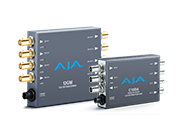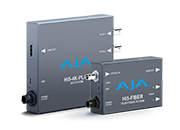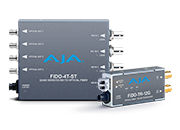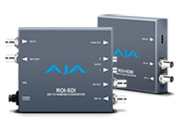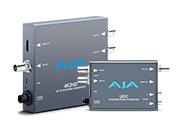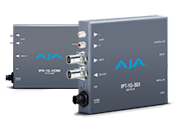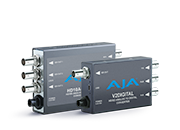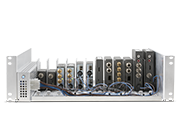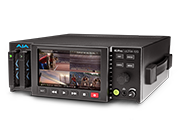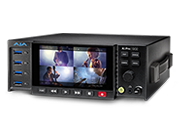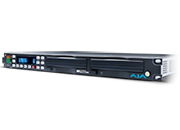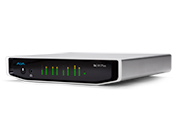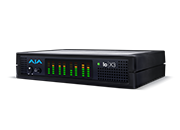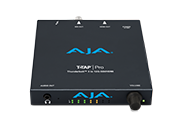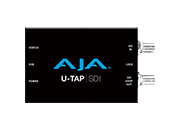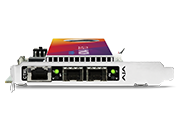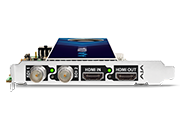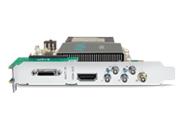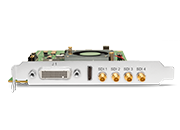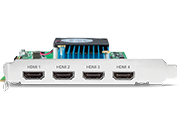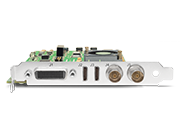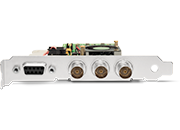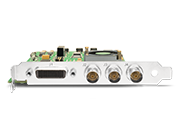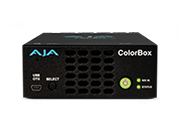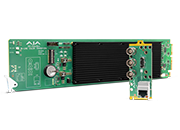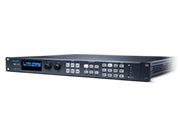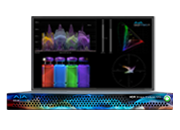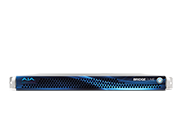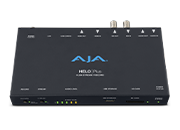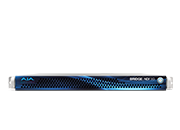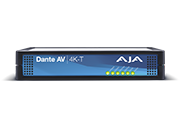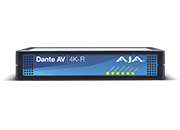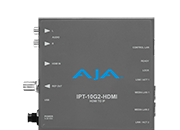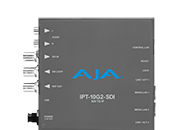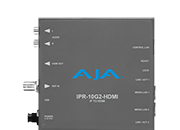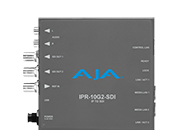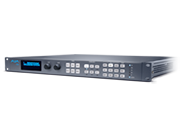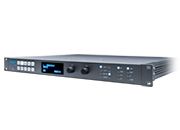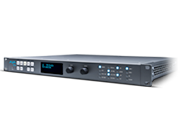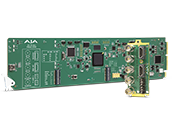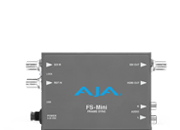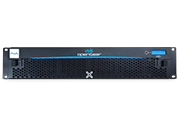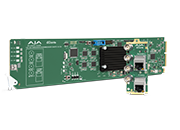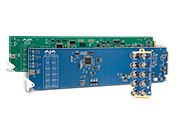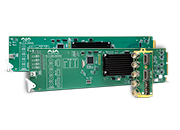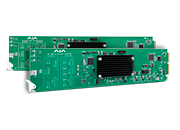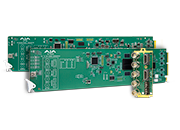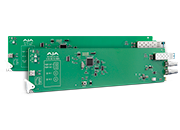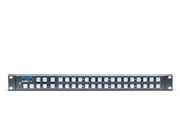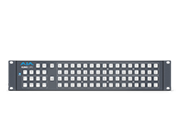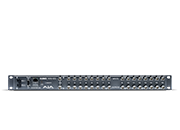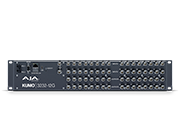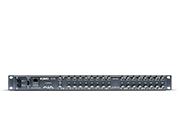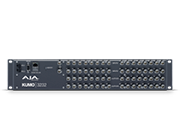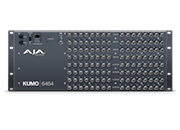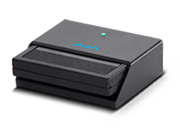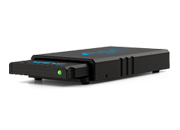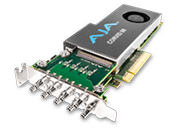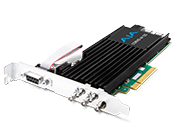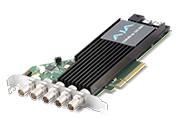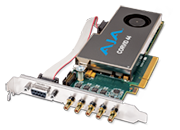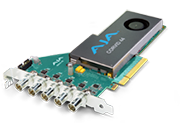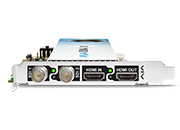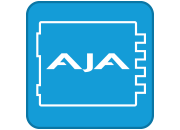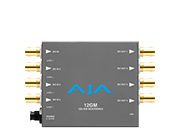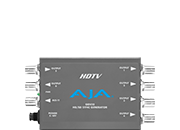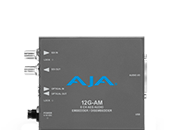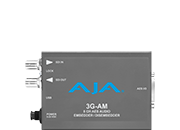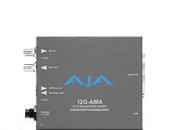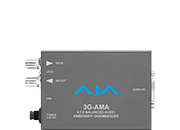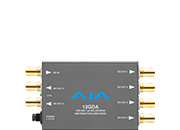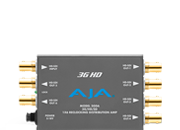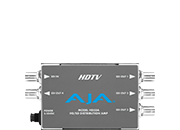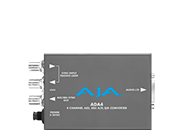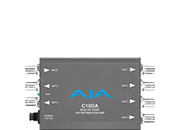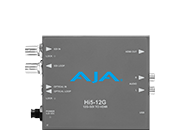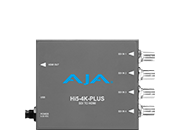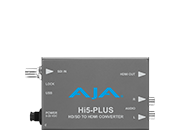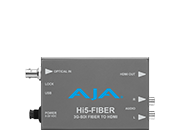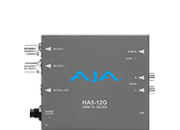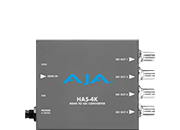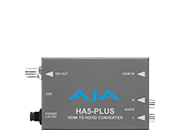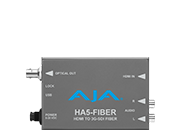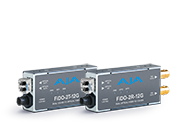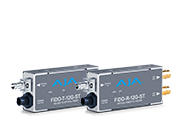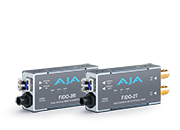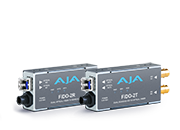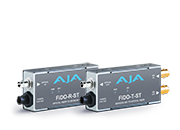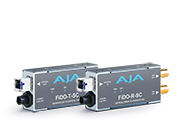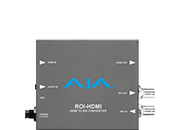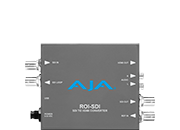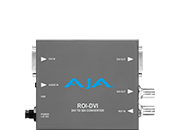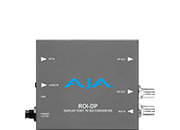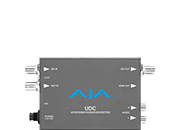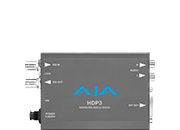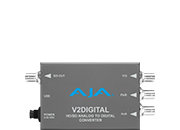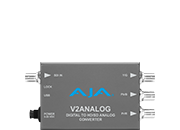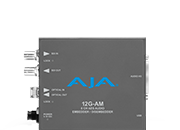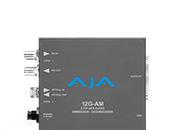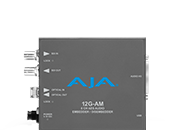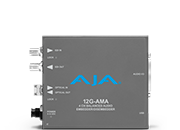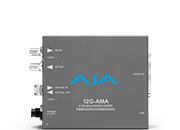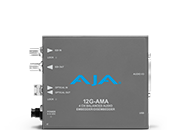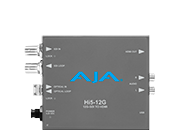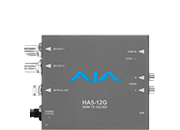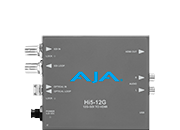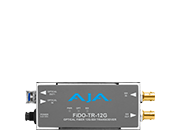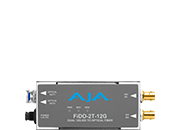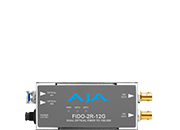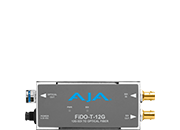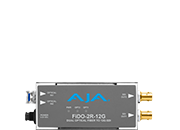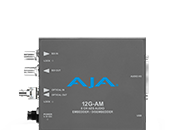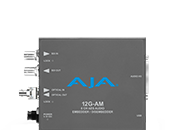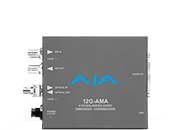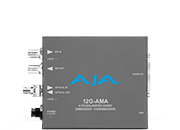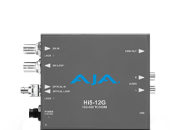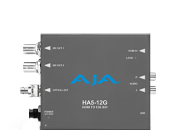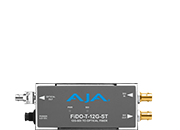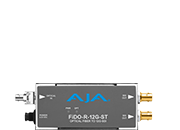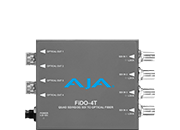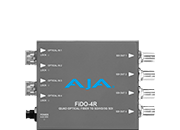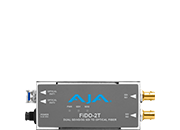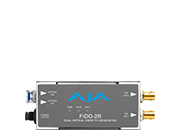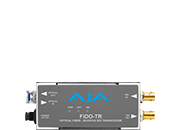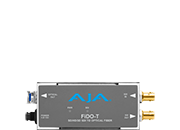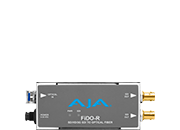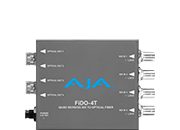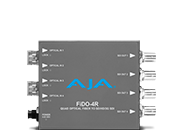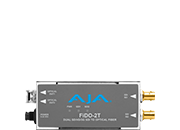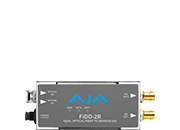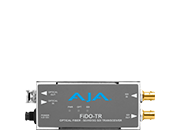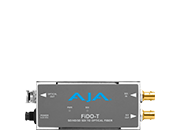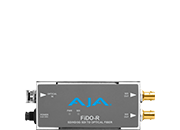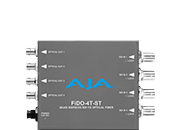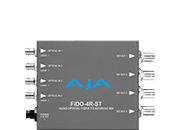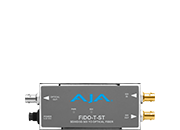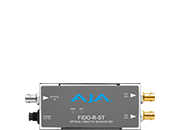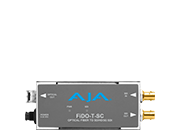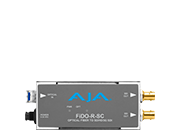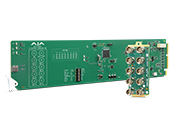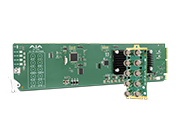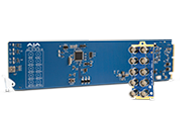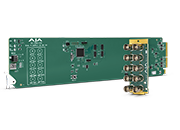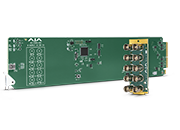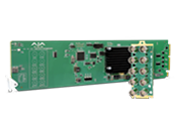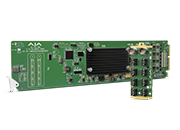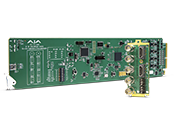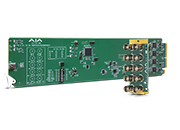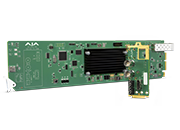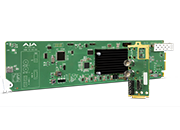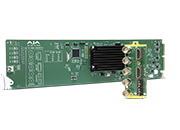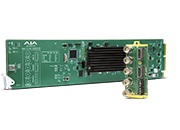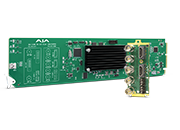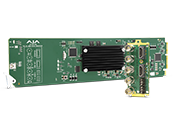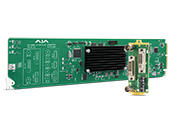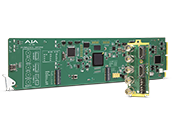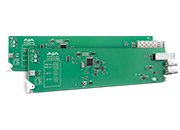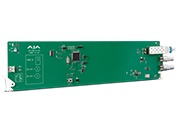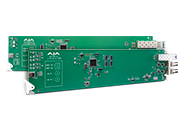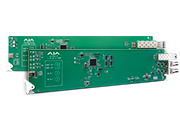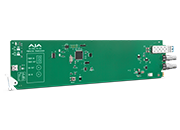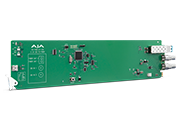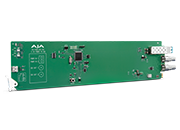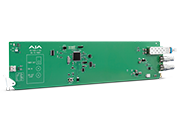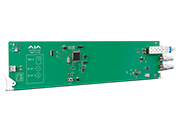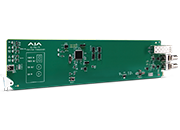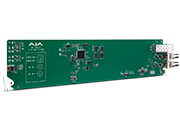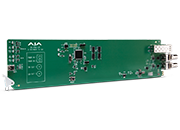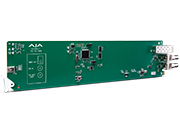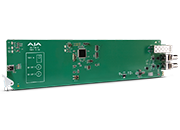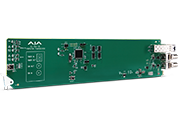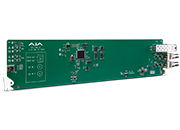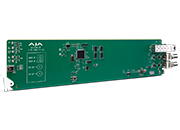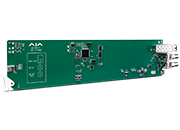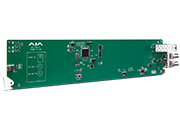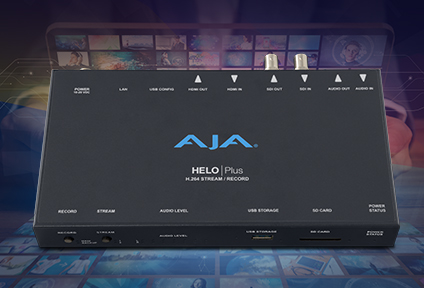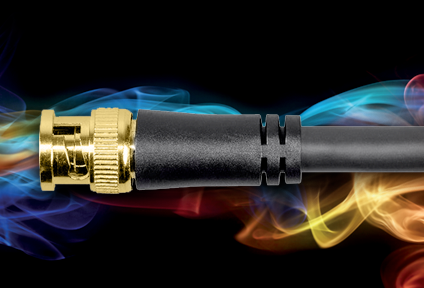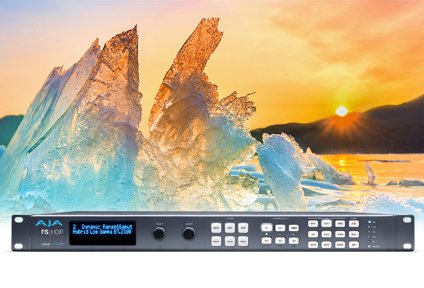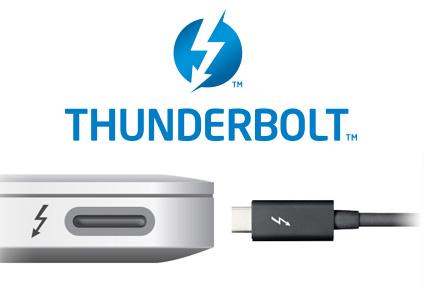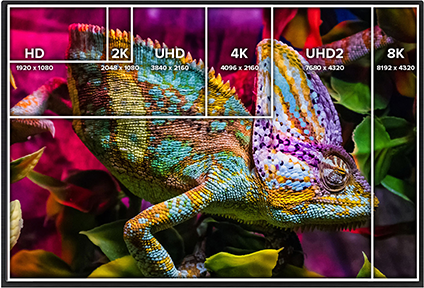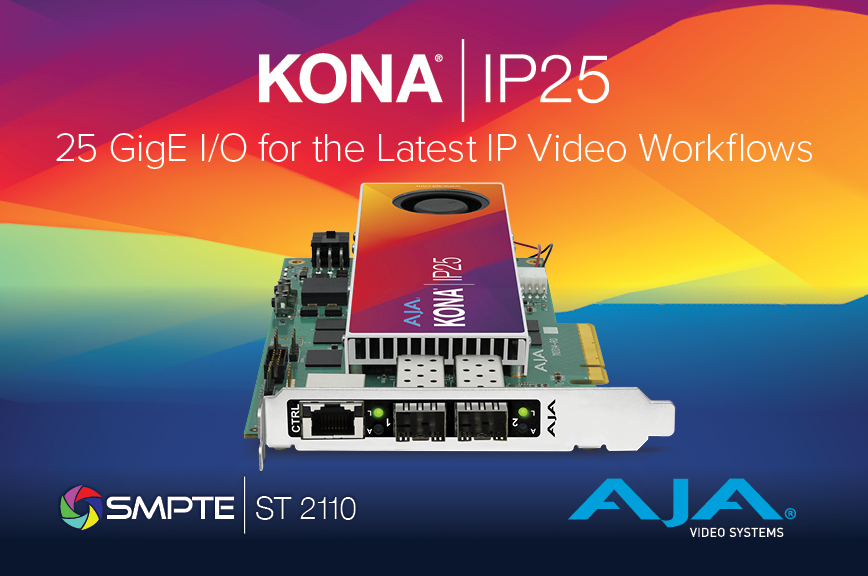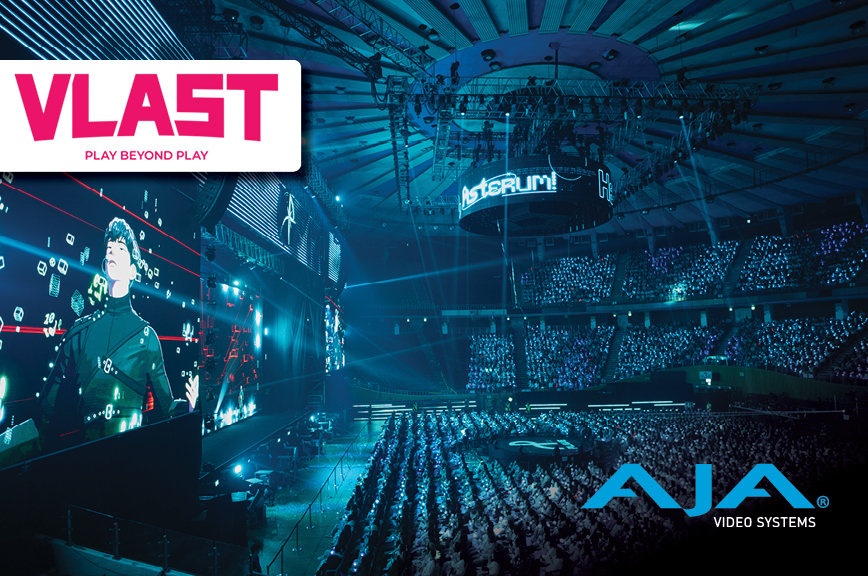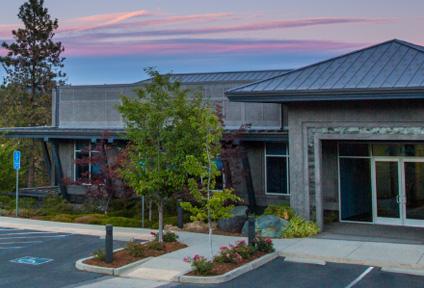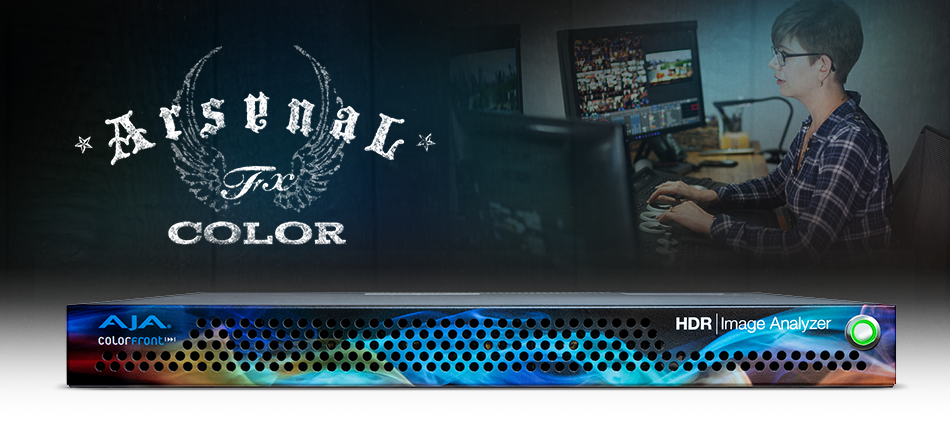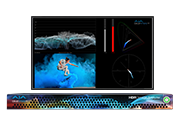AJA HDR Image Analyzer Helps ArsenalFX Color Optimize PQ, HDR10 and Dolby Vision Deliverables for Episodic TV Clients
January 23, 2019
ArsenalFX Color is a Santa Monica, CA-based full-service post production facility for episodic television. The bustling boutique studio works on approximately 15-16 shows at any given time, everything from major network medical dramas like “Grey’s Anatomy” and “The Good Doctor”, to “Ballers” and “Silicon Valley,” to “One Day at a Time” and many others. For the past two seasons, several shows have been finished in HDR using PQ and HDR10, and this year Arsenal will deliver Dolby Vision for two Netflix series as well. In order to support such an array of high dynamic range deliverables, Senior Colorist Rory Gordon and the Arsenal team rely on AJA’s HDR Image Analyzer to guarantee that images will be faithful to the intent of the show’s creators whether the final display is in SDR or one of the many HDR standards.
“We have a very collaborative process here and use a hive mind approach to make sure that each show is the best it can be. We’re sharing knowledge across workflows that require PQ, HDR10 or Dolby Vision deliverables. This helps us stay as up to speed as possible as the specs change, and largely where AJA’s HDR Image Analyzer fits in, allowing us to visualize exactly how our color shifts between Rec. 709, P3 or 2020,” said Gordon.
On each high dynamic range project, Gordon and team use the HDR Image Analyzer’s CIE Chromaticity monitoring to ensure that colors remain within the boundaries of the proper color gamut, whether it be Rec. 709, P3 or Rec. 2020 when doing transforms from HDR to SDR. “Taking an image from 100 nits to 1000 nits can be tricky because even though the luminance targets are largely the same for most deliverables, color gamut requirements can differ. Having the Chromaticity diagram monitoring available in the Analyzer is especially helpful for a VFX heavy show like ‘The Tick’ where the superhero wears an iconic blue suit, and we have to make sure that the particular shade of blue is accurate and within the correct color space, with appropriate use of the expanded color volume, and not just pushing it for the sake of pushing it,” Gordon continued.
With this new era of multiple deliverables and varying end-user displays, television finishing artists are tasked with making sure that if the viewer is watching a show in HDR, they have the same experience as someone watching that same show in SDR. The HDR Image Analyzer toolset helps a colorist guarantee that they’re not surpassing technical limitations of color volume while maintaining fidelity to the original creative intent.
“We use a Log-based workflow, and tools like Colorfront’s ExD and Transkoder to ensure our work is repeatable and reliable. Even more so in the HDR landscape, solid processes and consistent results is extremely important in keeping a show cohesive throughout its season, but also multiple delivery requirements.”
“We use the HDR Image Analyzer on all episodes to make sure that HDR and SDR versions have creative fidelity.” Gordon explains, “We think of it as HDR triage, so when we I look at a picture now, I can spot exactly where the tricky spots will be. For example, if there’s a fluorescent light with a gel in the scene, I know that if we’re not careful, in an expanded color volume we run the risk of having the plastic gel be visible and distracting. Using the Analyzer, we know exactly how to adjust for these situations in a way that will benefit both the SDR and HDR images.”
While AJA HDR Image Analyzer has been a key component of color workflow, ArsenalFX Color talent also used AJA’s FS-HDR to monitor color accuracy on the set of an upcoming Netflix show by transforming the camera’s Log output to HDR in real time for immediate monitoring and checks. “It’s always best when corrections can happen earlier in the pipeline with the cinematographer on set. We want the control to be in the creative’s hands first and foremost whenever possible. HDR, especially with dynamic metadata is a more fluid and open world, and tools like FS-HDR and HDR Image Analyzer give us an opportunity to optimize images even when we don’t have control or knowledge of how the end-viewer will be watching that picture.”
About AJA HDR Image Analyzer
HDR Image Analyzer delivers a comprehensive array of tools for the effective analysis of the latest HDR standards – including HLG, PQ and Rec.2020 – from 4K/UltraHD/2K/HD content in a convenient real time 1RU device. Developed in partnership with Colorfront, AJA HDR Image Analyzer supports a wealth of inputs from camera LOG formats to SDR (REC 709), PQ (ST 2084) and HLG and offers color gamut support for BT.2020 alongside traditional BT.709. AJA hardware prowess ensures high reliability and performance, with 4x 3G-SDI input and output, and DisplayPort connections. Specifically designed to be used wherever needed, the 1RU form factor fits into a range of environments, providing the confidence you need for consistent and predictable HDR production and mastering.
About AJA FS-HDR
FS-HDR, a 1RU, rackmount, universal converter/frame synchronizer, is designed specifically to meet the High Dynamic Range (HDR) and Wide Color Gamut (WCG) needs of broadcast, OTT, production, post and live event AV environments, where real time, low latency processing and color fidelity is required for 4K/UltraHD and 2K/HD workflows. Developed in partnership with Colorfront, the FS-HDR’s HDR/WCG functionality is powered by Colorfront Engine™ proprietary video processing algorithms. FS-HDR also serves as a full, 1-Channel up, down, cross-converter for 4K/UltraHD/2K/HD HDR transformation, conversion and frame sync needs and in 4-Channel mode, offers 4 independent channels of 2K/HD conversion including HDR transformations.
About AJA Video Systems, Inc.
Since 1993, AJA Video has been a leading manufacturer of video interface technologies, converters, digital video recording solutions and professional cameras, bringing high-quality, cost-effective products to the professional broadcast, video and post production markets. AJA products are designed and manufactured at our facilities in Grass Valley, California, and sold through an extensive sales channel of resellers and systems integrators around the world. For further information, please see our website at www.aja.com.
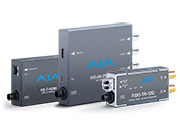 Mini-Converters
Mini-Converters
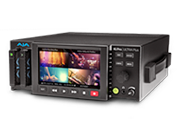 Digital Recorders
Digital Recorders
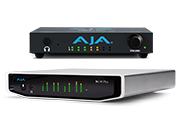 Mobile I/O
Mobile I/O
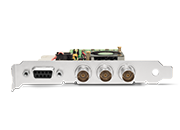 Desktop I/O
Desktop I/O
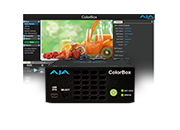 Color
Color
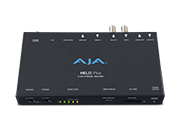 Streaming
Streaming
 AJA Diskover ME
AJA Diskover ME
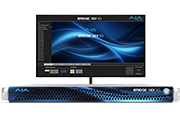 IP Video
IP Video
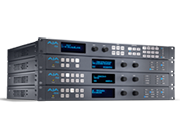 Frame Sync
Frame Sync
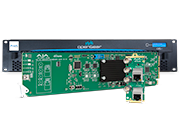 openGear
openGear
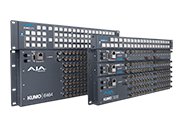 Routers
Routers
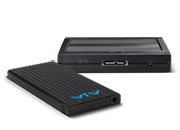 Recording Media
Recording Media
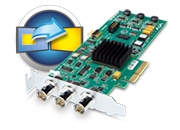 Developer
Developer
 Software
Software
